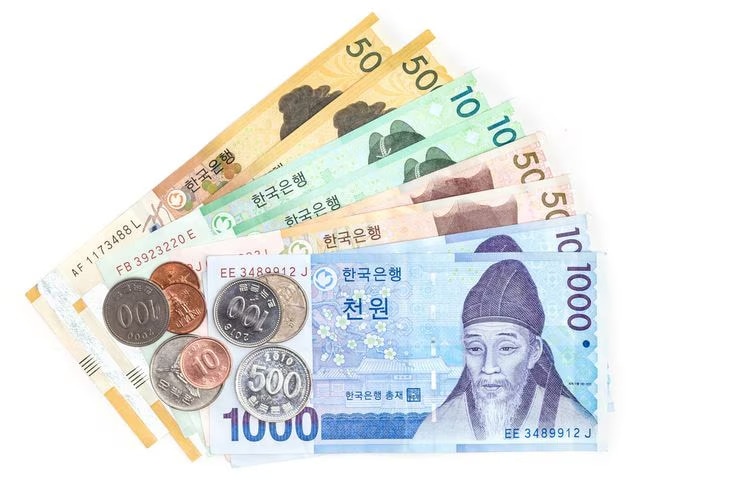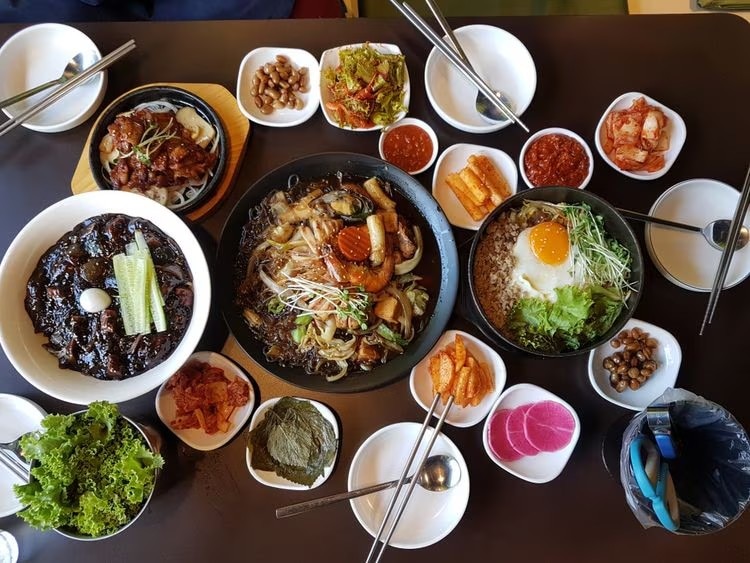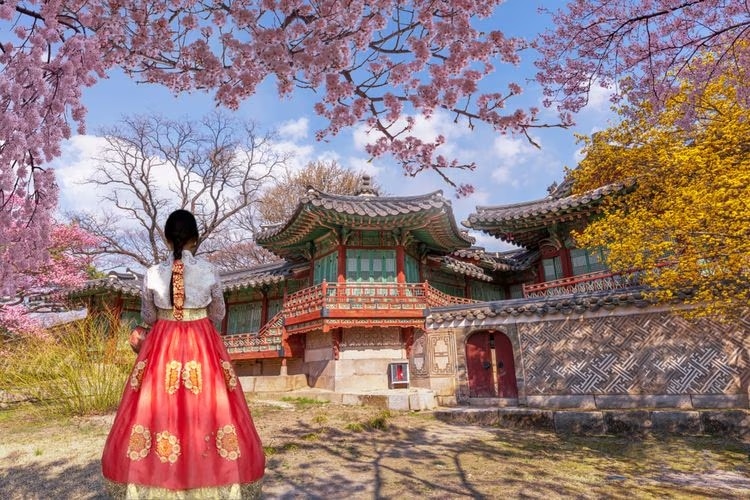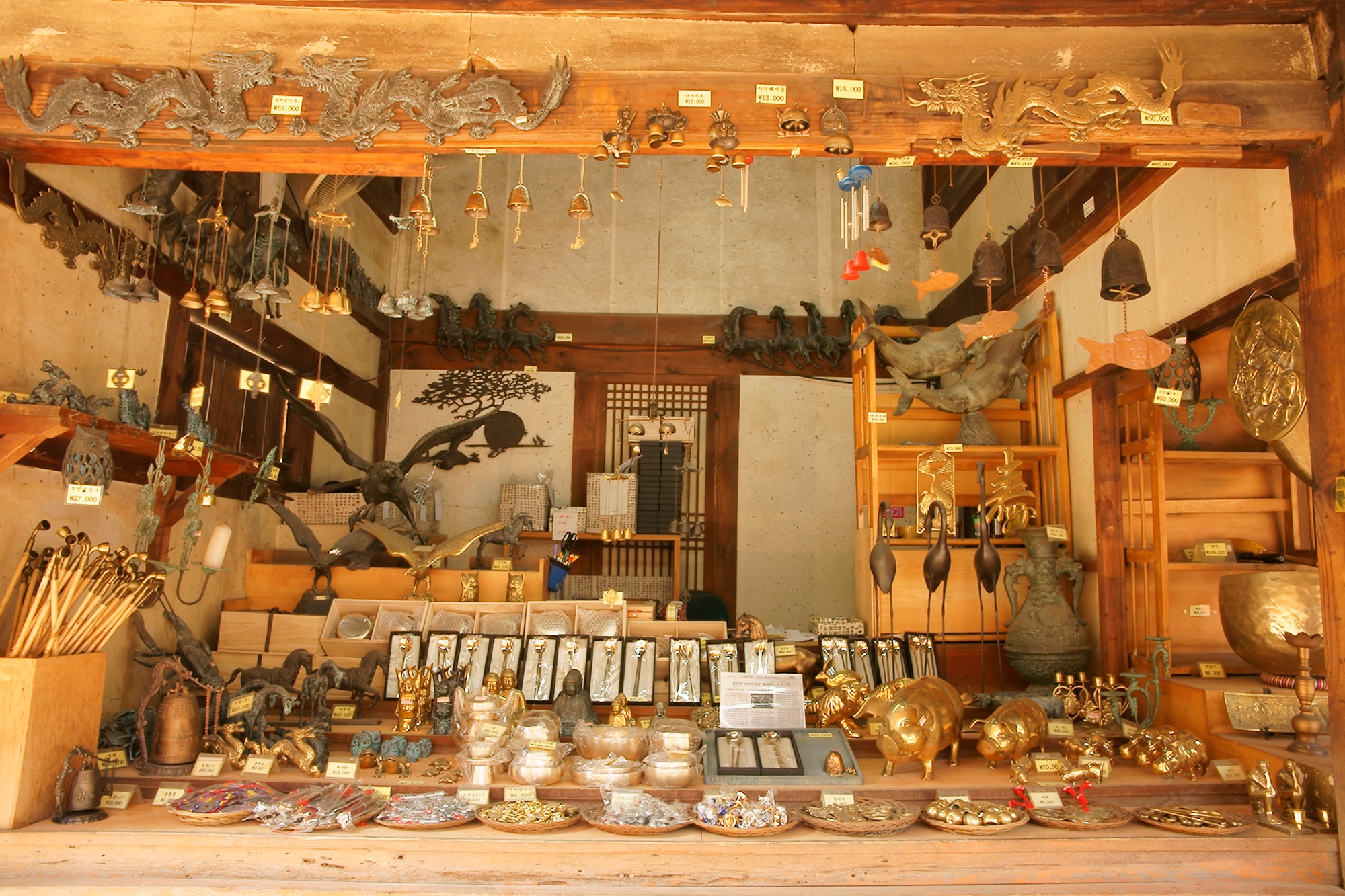-
2026/11/04
Los Angeles(LAX) -
2026/11/11
Seoul
(Updated: March, 03, 2026 19:07)
South Korea Travel Tips and Information
Official Name
Republic of Korea
Capital
Seoul
Population
Country Code
Approximately 51 million
KR
Country Code (international calls)
+82
The flight time to South Korea is approximately 12~14 hours. Check the climate, currency, religion, manners, other information of South Korea below. Wishing you pleasant travels to South Korea.
The Republic of Korea, commonly known as South Korea, is a republic located on the Korean Peninsula in East Asia.
Compare Airfares for Flights to South Korea
Compare Airfares for Flights to South Korea
Compare Airfares for Flights to South Korea
Compare Airfares for Flights to South Korea
Compare Airfares for Flights to South Korea
Compare Airfares for Flights to South Korea
Local Climate / Weather
South Korea experiences four distinct seasons: spring, summer, autumn, and winter. Each season showcases unique landscapes and weather conditions, with spring and autumn being the most popular due to mild temperatures and scenic views. Winters can be cold, especially in northern regions, with average temperatures dropping below zero, while summers are warm and humid, often accompanied by monsoon rains. Spring (March to May): Spring is one of the most beautiful times to visit South Korea, with cherry blossoms in full bloom across cities like Seoul, Busan, and Jeju Island. Temperatures range from 10°C to 20°C, making it ideal for outdoor activities and sightseeing. Summer (June to August): Summers are warm, with temperatures from 23°C to 30°C. Be prepared for monsoon rains, which peak in July. Coastal cities like Busan are popular during summer for beach activities, but plan for humidity and potential travel disruptions. Autumn (September to November): Autumn offers cool temperatures, ranging from 10°C to 25°C, and stunning fall foliage. It’s a peak time for travel, so expect higher tourist numbers in scenic areas like Nami Island and Seoraksan National Park. Winter (December to February): South Korea’s winters are cold, with temperatures often below freezing. Snow lovers will enjoy skiing and snowboarding at resorts like Yongpyong and Alpensia, while cities light up with festive winter illuminations.
Currency & Tipping
Currency
South Korean Won (KRW): The official currency is the South Korean Won (₩), with bills in denominations of ₩1,000, ₩5,000, ₩10,000, and ₩50,000, and coins ranging from ₩10 to ₩500. It’s easy to exchange foreign currency at airports, banks, and currency exchange kiosks throughout major cities. Airports like Incheon International Airport offer competitive rates, but rates may be slightly better at banks and exchange centers in popular areas like Myeongdong. ATMs are widely available, and many accept international cards. Look for ATMs with “Global” or “International” signage for ease of use. Check with your home bank for any international transaction fees. While cash is still common, especially in small shops and markets, credit and debit cards are widely accepted in South Korea, especially in larger stores, restaurants, and hotels. Mobile payment options like KakaoPay and Samsung Pay are also popular, although they may require local banking access.
Tipping
Tipping is not necessary.
Useful Travel Information

Voltage & Electrical Outlets
The voltage in Korea is 220V, with some areas using 110V. Electrical devices may require a transformer depending on the voltage. For plugs, 110V uses Type A, while 220V primarily uses Type SE or Type C.

Internet Connectivity
Korea has an advanced internet infrastructure, with people of all ages using smartphones effectively. Free Wi-Fi is widely available, and in cafes, passwords are often printed on receipts or provided by staff upon request. Travelers can also rent Wi-Fi devices at an affordable rate.
Water for Consumption (Drinking Water)
Tap water in Korea is hard water and not recommended for drinking. It's better to purchase mineral water from convenience stores or supermarkets. Free water dispensers are also available in some public facilities.
Culture, Religion & Social Etiquette
Culture
Korean culture is rich and distinctive, with some unique customs and traditions. One notable aspect is the mandatory military service for men, which lasts around two years. The New Year is not celebrated in January but during the Lunar New Year, known as Seollal, which is one of Korea's most significant holidays. Another important holiday is Chuseok, the Korean equivalent of Thanksgiving, during which most shops and businesses close, so travelers should be mindful of their travel dates. Traditional Korean clothing, the hanbok (chima jeogori), is a symbol of the country's heritage, and many tourists enjoy trying it on for commemorative photos. Korea is also famous for its thriving music culture, with K-pop gaining immense popularity worldwide.
Religion
Religion plays a significant role in Korean society, with 53.1% of the population identifying as religious, mainly following Buddhism or Christianity.
Social Etiquette
Korean manners and etiquette reflect deep respect for elders and hierarchy. On escalators, people stand on the left to leave the right side free for those in a hurry. Additionally, respecting elders is particularly important, and offering seats to the elderly on public transport is a common practice.
Food Culture
Korea is renowned for its diverse and flavorful cuisine. Favorites like samgyeopsal (grilled pork belly), tteokbokki (spicy rice cakes), samgyetang (ginseng chicken soup), kimchi jjigae (kimchi stew), budae jjigae (army stew), and dakgalbi (spicy stir-fried chicken) are widely enjoyed. Kimchi. For a more adventurous palate, Korea offers unique dishes such as beondegi, a traditional snack made from sweetly simmered silkworm pupae. Street food is another highlight, with treats like hotteok (sweet pancakes) and odeng (fish cake skewers) being local favorites. When it comes to desserts, Korean specialties like bingsu (shaved ice with toppings) and sweet red bean porridge (similar to oshiruko) are famous for their refreshing and comforting flavors.
Major Tourist Attractions & UNESCO World Heritage Sites
Major Tourist Attractions
The country's major tourist attractions include Seoul Tower (Namsan Tower), the National Museum of Korea, Han River cruises, the Korean Folk Village, Goto Mall (a shopping mall), Insa-dong, and Dongdaemun. Shops remain open even at night, allowing you to fully enjoy shopping to your heart's content. There are also many street food stalls, making it perfect for food tours. Additionally, during winter, popular destinations include Lotte World (an amusement park), where you can enjoy ice skating rinks.
UNESCO World Heritage Sites
South Korea offers an array of major tourist destinations and UNESCO World Heritage Sites that travelers will find captivating. In Seoul, explore iconic sites like Gyeongbokgung Palace for a glimpse into royal history or stroll through Bukchon Hanok Village to experience traditional Korean architecture. Jeju Island, a popular destination for nature lovers, boasts beautiful beaches, the scenic Hallasan Mountain, and the volcanic rock formations of Seongsan Ilchulbong Peak, a UNESCO site ideal for sunrise views. Don’t miss the ancient city of Gyeongju, often called the "museum without walls," where sites like Bulguksa Temple and the Gyeongju Historic Areas offer immersive cultural experiences, blending history with breathtaking landscapes.
Souvenirs
When visiting South Korea, picking up unique souvenirs is a great way to remember your trip and bring home a piece of Korean culture. Shopping for souvenirs is easy, with popular spots like Myeongdong, Insadong, and Dongdaemun Market offering a variety of keepsakes. Traditional items like hanji (Korean handmade paper), hanbok-inspired accessories, and ceramic pottery make meaningful gifts that showcase Korean craftsmanship. For beauty enthusiasts, K-beauty products like face masks, skincare sets, and cosmetics from brands like Innisfree and Laneige are must-haves, offering quality and value. Food lovers can pick up Korean snacks such as honey butter almonds, seaweed packs, and instant ramyeon, which are conveniently available in markets and convenience stores. Don’t forget trendy souvenirs like K-pop merchandise and character-themed items (like Kakao Friends and Line Friends), especially if you’re shopping in Seoul’s vibrant markets. With so many unique options, souvenir shopping in South Korea is a fun experience that allows you to bring a taste of Korea back home.
Travel FAQs
What is the safety situation in South Korea like? What should travelers be careful of?
South Korea is generally considered a safe destination for tourists, with low crime rates and a high standard of public security. Violent crime is rare, and theft rates are relatively low, especially in tourist areas like Seoul, Busan, and Jeju Island. However, as with any international destination, travelers should take standard precautions to ensure their safety.
When is the cheapest time to go to Korea?
Airfares to Korea are relatively cheap from May to July and from December to January.
Is English spoken in Korea?
In tourist cities such as Seoul and Busan, there are generally many people who can speak English. There is no need to worry, as most restaurants in tourist areas and hotels for foreigners have staff who can speak English.
Can I smoke in Korea?
Smoking is generally prohibited in indoor public places such as restaurants, cafes, and hotels. Even outdoors, smoking is prohibited in most places, such as bus stops, parks, and subway station entrances and exits. If you want to smoke, look for a smoking area or a place with an ashtray.





